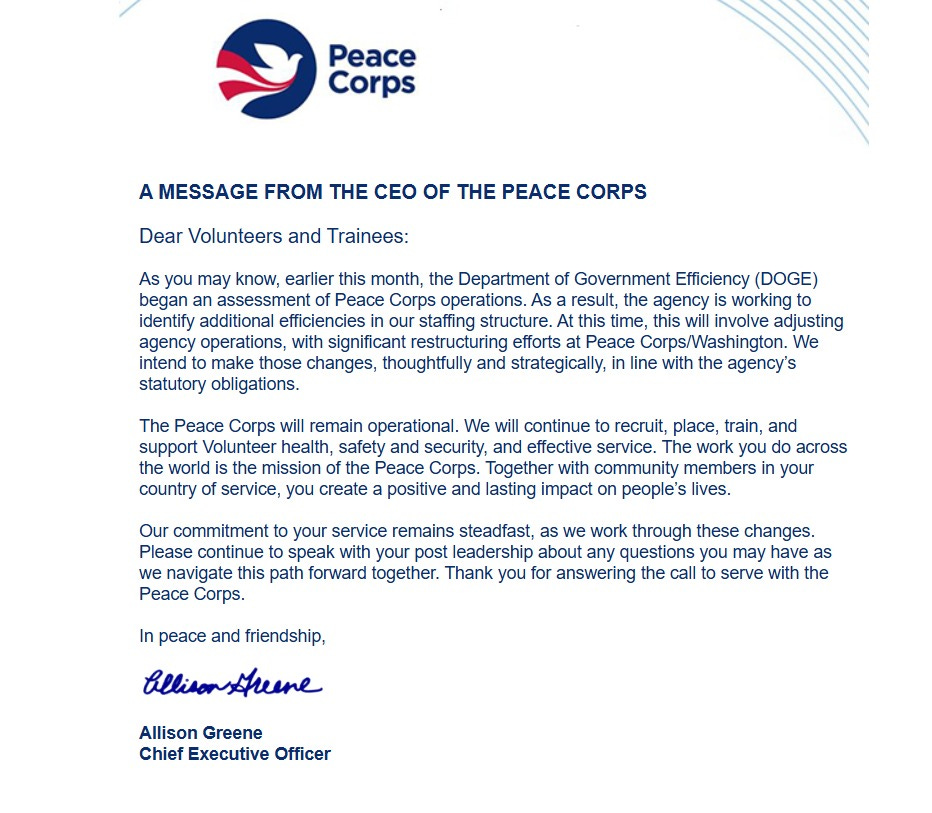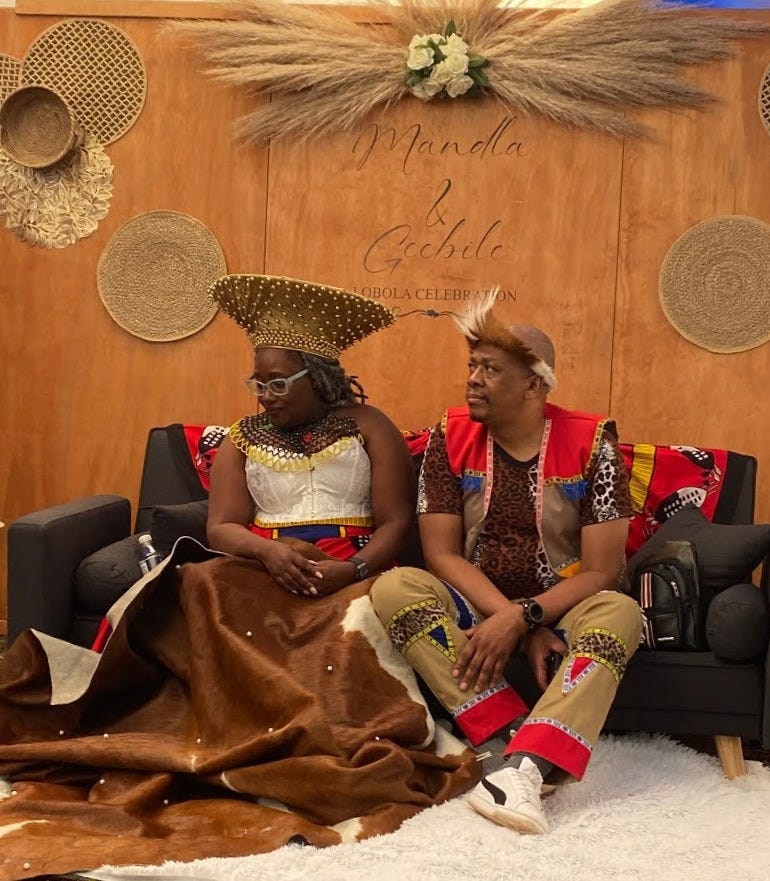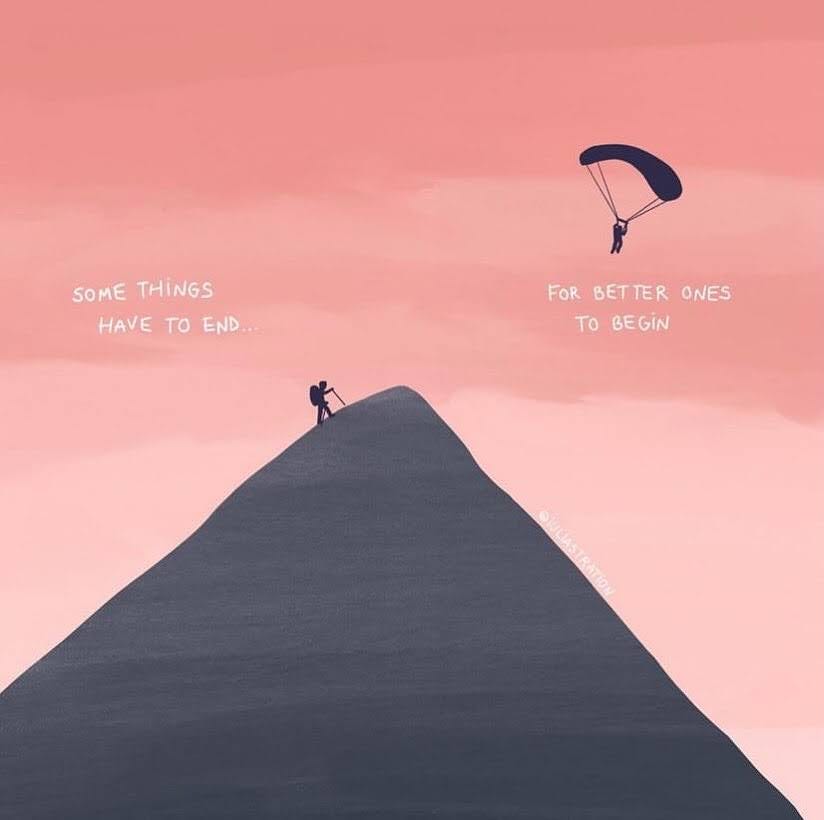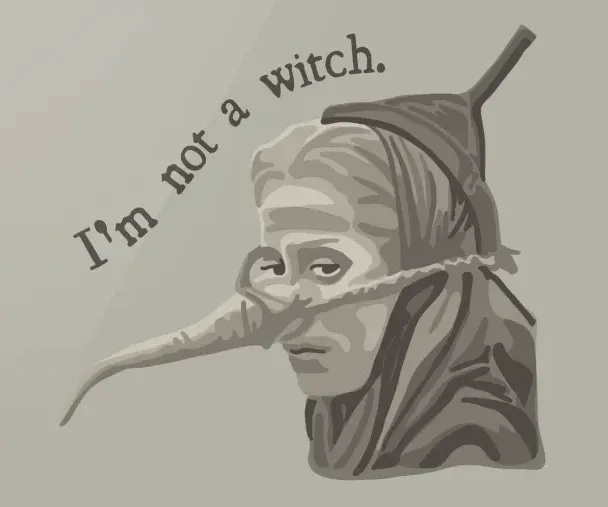Swazi Pacin' It #4
SPI #4 (April 21-27) A trip to the traditional healer, Peace Corps communications, Swazi-Zulu lobola ceremony, and "Oh she's homesick. Shem."
The contents and opinions of this post are mine alone and do not necessarily reflect the views of the U.S. Government, the Peace Corps, or the Eswatini Government.
Ola Ola! (Sho.)
Welcome to my weekly newsletter: Swazi Pacin' It, where I slow down, observe, and reflect upon my experience as a volunteer living in rural Eswatini.
Wemukelekile.
Welcome back, my lovely Substackers! And to my new subscribers, it's wonderful to have you on this journey with me.
Another week of school break down! This edition is coming out a little late again, but I can't apologize for a life well lived. Now, let's dive in!
This week, I had two very unique cultural experiences: a lobola ceremony and a trip to a traditional healer. Going back to my old site for three days was an equally beautiful and confusing experience. I love it so much there, and given that the decision to leave was so difficult and traumatic, it's hard to ride down the roads that I once ran and play Crazy-8's and Skip-Bo with my host siblings. It makes me wonder what could have been.
On the other hand, it's a privilege to have two very different families on opposite sides of the country that welcome me with open arms and send me off with entirely too much food every time I leave.
Food: The Swazi love language.
UPDATES:
I've shared previously that DOGE has been in Peace Corps headquarters since early April. Well, we just received our first official communication from the CEO, sharing that Peace Corps will remain operational, though staff cuts are coming. Here's the email below and a few links to news articles published about Peace Corps changes.
NYT: Peace Corps, Under Review by DOGE is Said to Plan ‘Significant’ Staff Cuts
The Guardian: Peace Corps to undergo 'significant cuts’ after DOGE review // DOGE cuts to Peace Corps with in-person visits and records access
I'm wearily optimistic, especially given to fate of the Millennium Challenge and the AmeriCorps NCCC program. But worrying hurts you twice, and I have to focus on doing the best I can with the time that I have.
But please, if you are reading this from the states, advocate for this program by emailing your representatives and making a specific ask for action: Urging your congressperson to speak in support of Peace Corps and vote for continued funding when the new budget is introduced.
Culture & Language //Lulwimi nemasiko
Here is where I'll share any new cultural aye, wena! moments, cultural notes, Swati or Zulu songs, or Siswati phrases I learned this week.
Traditional Healer
I kicked my sandals off at the door, walking into the stone rondavel. Seneca followed in behind me as we muttered our greetings.
A single white candle lit the space, overtaking the faint veil of sunlight filtering through the curtains. Tears of wax of white, blue, and yellow melted down the ceramic brick in the middle of the room, with two bowls laid out in front of the grass mat beneath my feet. One, filled with shiny silver coins. The other, a collection of old metal pieces. Something old and something new.
A fresh-faced man, round as the room around us, sat up against the opposite wall. His wide bare feet pointed up to the thatched roof, with a cheetah print cloth resting over his lap.
Introductions were brief, simply asking us what we were looking to gain out of this session. He was calm. Softly confident on the other side of the candle. The flame didn’t flicker, smoke winding up in a routine spiral.
We shared little at the beginning. Seneca and I were both a little skeptical, knowing nothing about this man other than a roadside recommendation from a bomake shop. Seneca had gone to a different traditional healer that week and wanted to see what elements would carry over. Always get a second opinion, right? We took care not to overshare in the hope that the healer would be able to uncover the truths himself.
I didn’t quite know what I wanted to ask, but I knew I was worried and confused about my future. There’s so little clarity in my present, and I had begun to give up the fight to hold onto it. Every “BREAKING NEWS” update added another pebble of anxiety into my gut, dragging me down with uncertainty. What was yearning for? Would I be staying in Eswatini, or would my program soon be shut down? What would I do if the worst-case scenario trampled my reality?
We asked him as much, vaguely sharing that we wanted to see what was in the path ahead. He nodded, closing his eyes as his voice took on a deeper tone.
“Khosiyami, Khosiyami, Khosiyami,” he chanted, reaching up to God and the ancestors for insight. Dice of different sizes and a single silver coin clacked between his hands as he rocked and repeated his call to God.
Suddenly, he stopped, the dice tumbling out of his hands and onto the paper in front of him. He looked at the dice and the single silver coin that had rolled away from the paper.
“Are your parents separated?” he asked, eyes locked onto mine.
“Uh…” I froze. This wasn't what I came here for.
My parents divorced officially three weeks ago. My mother had just celebrated her birthday. She would have a fresh start to her next age, living in the home that was fully her own, decorated in the memories of her adult children's upbringing, hopeful for the future adventures with her grandchildren.
I stared at the Babe, shocked. “Uh, yes, they're not together.”
“Your ancestors are fighting. They’re fighting over you. Your father’s ancestors and your mother's ancestors want you, but you go to your mother's side.”
He looked down at the dice again, closing his eyes and rocking to each syllable. “Khosiyami. Khosiyami.” Whatever he saw behind his eyelids caused him to rearrange the dice, setting some off to the side of the paper. Then back on. Tapping various pieces with a wooden stick as he explained his visions further.
“Your mother’s side. They raised you. Your mother's ancestors look out for you during the day. They take care of you.” Tap tap tap on the dice. “Khosiyami, khosiyami. But your father's side, you don't talk to them.”
Every word that tumbled out of his mouth rang true, and I tried to piece together any logic-bound explanation for how he could know these things with nothing my my name, a candle, and a handful of dice.
“I don't have a relationship with my father, no. I don't speak to him, he doesn't speak to me.”
It's for the better, honestly. Every positive interaction was met with anxiety, wondering what would set him off, which comments would I have to dodge as he spewed targeted jabs at my mother, her family, or people with liberal ideology. Every negative interaction ended up with me shaking, feeling a type of rage only he can bring out of me—the come-down always in the form of tears.
Babe Shongwe nods in confirmation, “Your father's side is angry. They attached umoya lomubi. Do you know umoya lomubi?”
“Uh…” I know mubi, which means “bad”. Very reassuring. Thanks dad.
“Evil spirit?” Seneca offered the translation. Greeeeat.
“Yebo. You have umoya lomubi from your father's side. It’s why at night, you itch. When you geza (bathe) you want to scratch your arms and legs. And here,” he taps at the coin, picking it up and moving it over and over. “This coin is your money. While this evil spirit is here, you always lose money. You misplace money and can't hold onto it. This is because of the spirit from your father's ancestors.”
Goosebumps race up my arm with each new detail he lays out. The previous night, I had hardly slept, bothered by itching on my back, arms, and legs. It was more than just bug bites, but a whole-body scratching. This wasn't a new occurrence. Over the past few months, I had gone through bottles of body lotion, trying to calm my skin that crawled with irritation—always at night. It never did the trick. But in the morning, I would be fine.
I didn't bother to confirm what the inyanga told me. They were statements, not questions. And I thought back to every shift I made since entering the room. I couldn't recall scratching at all. I hadn't felt the itching sensation yet that day. The money, well, I couldn't help but agree with that. I wasn't exactly on the path to financial prosperity as a volunteer. There wasn't an income for me to put into savings, and I was still paying off credit card bills from when I was hardly making ends meet during AmeriCorps.
Since arriving in Eswatini, I also had a habit of losing cash. It wouldn't be gone forever, but I always kept a reserve pile of cash in case of emergency. I had specific spots I would hide it, just out of reach and lined in hidden pockets to keep me from accessing it on impulse. On the rare occasion that I needed it, it would never be where I placed it. Instead, I would find it weeks or months later in places I couldn't explain.
Babe Shongwe wasn't finished. “It's also why you feel like no one takes you seriously in the community. Do you sometimes feel like people are not taking you seriously?”
“Yes.” I thought of my teachers’ meetings, and the ideas I would present being quickly pushed aside without further question. It was normal to feel pushback in a different cultural and power structure, but it felt like something more than what the other volunteers were experiencing. I had never had this kind of pushback. But then again, I hadn't felt this brand of uncertainty since my teenage years.
“This umoya lomubi and it keeps people from listening to you, from taking you seriously.” According to him, people could sense the evil spirit on me, even if they couldn't see it.
I nodded, trying to exhale out the weight in my gut. I could see Seneca glancing at me from the corner of my eye. As my rock in Eswatini, I tell her nearly everything that goes through my mind. Ever struggle, every inexplicable event, she knows. All of these little details would be adding up for her, too.
“So what do I do?”
Babe consulted the ancestors again, rocking and chanting, shifting his dice. “Your mother’s ancestors want you. They protect you. You must release your father's name and choose your mother's ancestors. And I will give you something to remove the evil spirit. You must let go of your father's side.”
“Okay." Easy enough, though my mind spun, ropes of thoughts lassoing to hold onto any hook of logic. I had been on that path of separation for years, though the process had expedited recently.
“Do you have any more questions?”
So many more, but I didn't know where to start. I didn't know which I wanted him to guide me on and which I preferred to reveal for myself.
“I want to know where I will be—where I will go after this. Where will I be in future months?” He gathered the dice, shaking them again before tossing them onto the paper. Again, the silver coin rolled away.
“Your mother's ancestors want you to go back with them. Have they asked you to live with them?”
“Yes, but that is not what I want.” I wasn't ready for him. Frankly, I didn't know if I could ever move back to the state I grew up in, not since I had a taste of the West Coast and the rest of the world.
“Okay. So what is it that you want? Where do you want to go?”
I didn't know. With the potential impending doom of Peace Corps, I had begun to outline my backpacking route. The 19-stop journey ended in Australia, where I hoped to get a working-holiday visa. I would figure out the next step from there.
“Australia?” As soon as the words left my mouth, my gut told me No. This is not what I want. Regardless, Babe Shongwe repeated his ritual, asking a question to which I already knew the answer.
“No, you won’t go to Australia. You’ll be here in Africa for the next two years. Not Swaziland, but Africa. Do you know what I mean by Africa?”
“… yes?”
“Yes, you'll be in Africa for two years. Not Swaziland, Africa. But Africa. Still, your ancestors want you to go with them. They want you to come back and live with them.”
A new weight of guilt wrapped around my shoulders, tangling with confusion. Going back to Missouri was not something I could do, and where would I be if I weren't in Eswatini?
“You’ll be together.” Babe Shongwe said, interrupting my thoughts. He gestured to Seneca beside me. “You both will be in Africa for the next two years. Then go in different directions.” The statement sparked hope and sadness. Knowing that Seneca, whom I had met less than a year ago but had become an integral part of my support system, would still be adventuring beside me for the next two years was good news.
But the ending was met with the reality that I knew too well— that life goes on. The paths we take may parallel at times, tangling with the soul ties and relationships that will help guide the journey ahead. But then the intersections come, we must turn toward our light and calling. Doing so, we often say goodbye to the people we care about. This doesn't mean that the people we walk away from will be out of our lives. But in this evolving world, borders, seas, and obligations separate friendships.
The inyanga then moved on to Seneca, answering her questions and giving insight on her path ahead. We had very different readings. Babe was adamant that her ancestors want her to go back to school and prioritize education above the love that was on its way to her. He said what many people in the cohort have seen in her—that she was a natural born leader and meant for a career at the top of her field, whatever it may be.
Eventually, we wrapped up the session, offering up payment to Babe Shongwe's ancestors. He walked us to the Khombi stop, making small talk about religion and our church attendance (oops). A conversation common in Eswatini, but one I liked to avoid at all costs. “I go once a month with my family,” is the answer church-goers, especially zionist healers, like to hear.
He sent us away with two powdered mixes for which we were to steam ourselves—boiling water and sitting in our bucket baths with blankets over our heads to trap in the heat. Sweating through the steam, he instructed us to send prayers to our ancestors for guidance.
After steaming three times, the umoya lomubi would leave me in peace with my mother's ancestors, and Seneca would find the answers she needs. As the khombi pulled up, we offered one final adieu of thanks to Babe Shongwe.
On the journey back to the hostel, we debriefed, trying to untangle the thoughts and revelations spun under that thatched rondavel.
We'll see what comes to pass.
Lobola Ceremony
In Eswatini, a dowry exchange is required for marriage. The price? Cows. This weekend, my host sister at my previous site had her lobola ceremony for the official exchange. She was born in Eswatini, now living in South Africa, and married to a Zulu man. So, the Lobola Celebration was cross-cultural. We started cooking Friday night, and the women hadn't stopped cleaning and preparing food even after I left on Monday afternoon. We butchered a cow, a pig, and chopped SO many veggies from the garden. I was on onion duty on Saturday, crying in the kitchen as I chopped about four dozen onions from Make's garden.
During the Saturday ceremony, the cows were brought in, examined by my host family, who would be receiving them. There was a group of students (some of whom I had taught last year) and a choir that my late Babe used to sing in, which performed just before speeches. The speeches resembled that of a rehearsal dinner, including a Sikuma (stand) if anyone had a reason to protest this union, offering. Don't worry, no one stood.
I'll break into more of this in a separate post because it's too much to unpack, and I just arrived at my hostel after spending all weekend with my old host family (but still very much my family). I'm so lucky to have two places to call home in the beautiful country, and feel connected to the community I only spent three months in, post pre-service training.
Revelations // Loko lengakufundza
Lessons or reminders as I move through this new lifestyle and have time to reflect on my past twenty-seven years of life.
No, I'm not homesick. One frustrating part of moving away is that anytime I'm upset and unable to express or translate the root of the issue, it's met with “She's homesick, shem,” when I exit the room that I hadn't hid my tears well enough in.
It's never that I'm overwhelmed. It couldn't be that I'm hangry or tired. It's inconsequential that I haven't had water in over 24 hours or that I've been trying to avoid the bathroom all day due to the group of men hovering around the pit latrine. And I'm too nervous to go in the dark, hopping over the maze of people sleeping on sponges and floor mats at the lobola ceremony.
Instead, the only understandable reason is that I miss the United States. And when I'm already an unstable wad of emotions, this response enrages me. Because while I miss my mom, my siblings, my cousins, and my friends, I don't want to go back. The collection of comforts and ease of access I once missed doesn't seem so great anymore.
I have dreamed of this experience for too long. Though this is a dream come true, it's an emotional rollercoaster. Some days are remarkably easy and exciting, while others feel like a visit to rock bottom. That's where I grapple with the grief and rage I hardly understand. So these emotions? No, I don't think it's from homesickness. It's me mourning the shattered pieces of what I once was, and the discomfort of growing pains in this new environment.
Having a family with different paths, comfort zones, and financial supports is difficult. Recently, volunteers’ families have visited them in service, or they are planning their trips to Eswatini and South Africa. Some volunteers are older siblings and have had adult jobs, leading to larger savings accounts. This allows them to help pay for their family members’ tickets or accommodation here. Others are financially well off with parents who traveled for work or vacationed throughout their lives. That’s simply not my reality, and that's okay. Everyone's life goes on. My brother has had two children recently, one of my sisters went back to school, and my parents recently separated.
We are all on our own paths, and it has been a dynamic last few years. In this current political climate, I don't think life is about to slow down, either. But it's been difficult to watch families come and go for visits, and know that my own can’t come. I miss the people back home, but I'm unwilling to use my vacation days to go back to the States. I remind myself that family will always be there, but this experience will not be. I'm a seasoned pro at being away from the people I love and restarting my life elsewhere, but the disconnect has always been difficult. Being away from my people for over two years is a completely new challenge. But I'm glad that if I can't share my experiences in person, there are always words and photos. There is always this.
Scrolls & Pages
Loku lengikufundzako
My reading list, Substackers that popped out this week, and media reviews
Book count since entering Peace Corps Service last June: 41.
I’m listening to: Heir of Fire, by Sarah J. Mass, Throne of Glass Series Book 4. This is, imo the best book of the series.
I'm currently reading: Glow by Raven Kennedy, Plated Prisoner Series Book 4
Background Book: The Women by Kristin Hannah
Substack reads:
This piece feels like everything. In any relationship lost—in whatever form it may be—never speaking to someone again who still resurfaces through memories is an odd sort of connection. Sometimes, that ghost of that person's words is the reason you laugh in a quiet room. The what-ifs of text messages you could type, saying “This reminded me of you,” or “I hope you've achieved everything you once dreamed of.” Secrets and memories are held only within your two minds, likely never to be spoken again. And those secrets held? That unspoken vow of silence? That feels like intimacy. But in time, we must realize that the two people who were together back then no longer exist. Both have evolved due to necessity and time. But there's always that rose-colored memory that wonders if the path could have been different, and if I single decision could have kept you together.
My Writing // Tindzaba Tami
Recent posts and upcoming work.
COMING SOON: Swazi-Zulu Lobola Celebration.
If you missed it last week, I shared my experiences with expressing spirituality in a Christian-dominant society, including a dive into the history of Swaziland and colonialism.
I'm not a witch.
The contents and opinions of this post are mine alone and do not necessarily reflect the views of the U.S. Government, the Peace Corps, or the Eswatini Government.
Child of Kratos Updates:
Due to recent travels and uncertainties, settling down and writing this book has been a lot more difficult as life has picked up. It began as an outlet to escape reality and vent about the craziness occurring in my country of origin and its actions affecting communities across the globe.
I have made little progress lately, and I think this revelation is essential for understanding the writing process. Even more than taking a break from reading some other person's story for a few days, I'm having to relearn my characters. I know the events so deeply,, but my perspective has changed in the time away, marking the growth and evolution of my thoughts. Because I change a little every day, entering my character’s headspace again is difficult. I'm a new person trying to curate a world through a novel lens.
The story follows 20-year-old Cianna Blackwood, a training agent in the country of Clythedan. She has been designed and toned to be the best of her kind—a cunning intelligence agent meant to promote global order and peace in a rebuilding world. When a rival school moves into Blackwood Academy as a result of a presumed terrorist attack, viewpoints of history and buried knowledge come to life. Cianna discovers that she has been unwittingly a part of a greater agenda.
I love you, I love you, I love you. Thanks for being a part of this journey and following the unwinding path.
I would love to hear your reflections and similar experiences. Drop a comment below. Ngiyabonga kakhulu bonkhosi!









